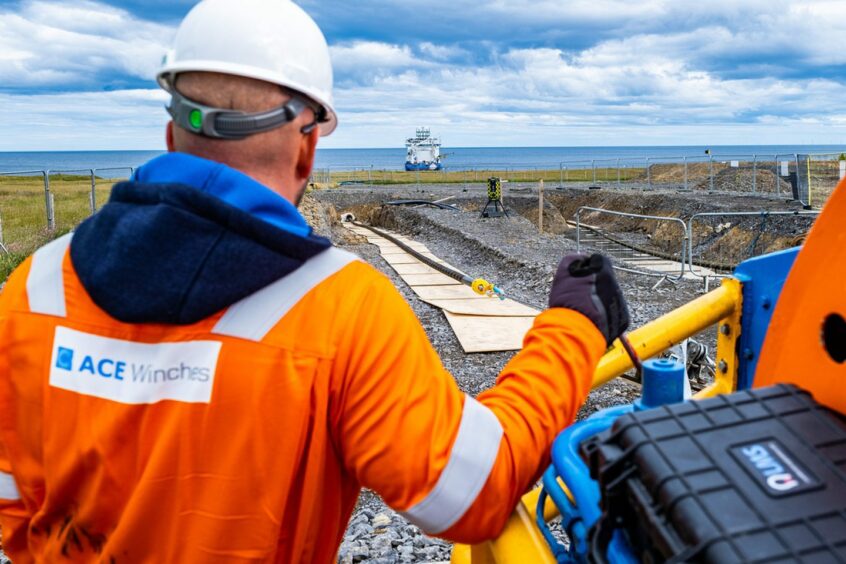
More resources will be needed to allow new energy projects to pass through the planning system more quickly, the Commons has heard.
The chair of the Commons Energy Security and Net Zero Committee, Angus MacNeil, said the planning phase for energy projects is taking significantly longer than the construction, while a senior Tory said that more resources are needed for the required “quick, timely approvals”.
They were speaking as the Commons debated Government spending on energy security and reaching net-zero emissions.
Mr MacNeil said: “We obviously have a huge problem in planning and sometimes for justified reasons, but planning can take a lot longer than the construction of projects, sometimes twice the length of the construction of projects and that is causing huge difficulties.
“So, building the network is not really the big part of the story, planning the network becomes a bigger part of the story.
“Where energy infrastructure is built or where energy is generated, we have to look (at whether) there will be a cost to some people and can that be compensated in community benefits, in job creation and other innovative ideas.”
Mr MacNeil is currently sitting as an independent after the SNP suspended the whip for a week follwing reports of a row with another MP.
Conservative chairman of the Welsh Affairs Committee Stephen Crabb echoed Mr MacNeil’s comments, telling the Commons: “If we are going to see the scale of investment, whether that’s in grid capacity, the deployment of turbines, offshore or onshore, or any of the other aspects of this renewal of energy infrastructure, we are going to need to see quick timely approvals and being done properly by planning authorities.
“And I don’t see many planning authorities with the skills and the resources to be able to handle the kind of volume and the technical detail of the kinds of applications that will be forthcoming.
“I think it’s a real need for Government and for us in Wales as a Welsh government primary responsibility, to be thinking about how they resource planning authorities for the future.”
Plaid Cymru MP for Ceredigion Ben Lake suggested creating a wealth fund for renewable energy as some countries and territories have done elsewhere to raise more revenue from energy resources.
He said: “This is something that perhaps we could also be doing now in the renewable context.”
He referenced a study which he said found the UK could have built up a £450 billion sovereign wealth fund from North Sea oil and gas.
He added: “I think we can learn a lesson from this, and start investing now to create some sort of a fund that could serve as a buffer against future economic shocks.”
The need to act on climate change was put forward by MPs from across the House.
But The Reclaim Party MP Andrew Bridgen (North West Leicestershire) said there was “lively debate” in the field of climate science that was “not necessarily” reflected by MPs, saying the Government was “taking one side of a scientific argument and once again declaring it as an unchallengable fact”.
Mr Bridgen, who was expelled from the Conservatives for comparing vaccines to the Holocaust, said: “The only thing for certain is if we carry on down the legally-binding route of net zero the Government have set for us, our people will become poorer, colder and less free.”
That human activity is contributing to a changing and warming climate, and that global average temperatures are rising in correlation with and as a result of increases in greenhouse gas emissions, is an internationally recognised scientific consensus.
Energy minister Andrew Bowie said: “I can confirm we’ve already met with the Crown Estate to discuss how we can work much better together moving forward.”
The Crown Estate manages the seabed around England, Wales and Northern Ireland and says it works alongside government, industry and stakeholders to “unlock the potential” for renewable energy offshore.
Mr Bowie also stressed the importance of developing skills in the workforce, saying: “Skills are … the biggest challenge I think we face in terms of delivering all of the projects we’re seeking to deliver over the next few years.
“That is why I’ve already instigated work between my department, the Department for Education, the Department for Work and Pensions and, indeed, crucially in this field, the Ministry of Defence so that we can all work together to improve the skills base and ensure the next generation have the skills that they need to help contribute to this energy revolution we’re undergoing in this country.”
Recommended for you
